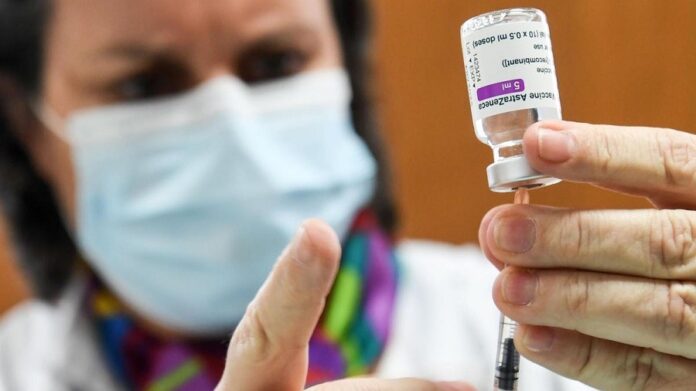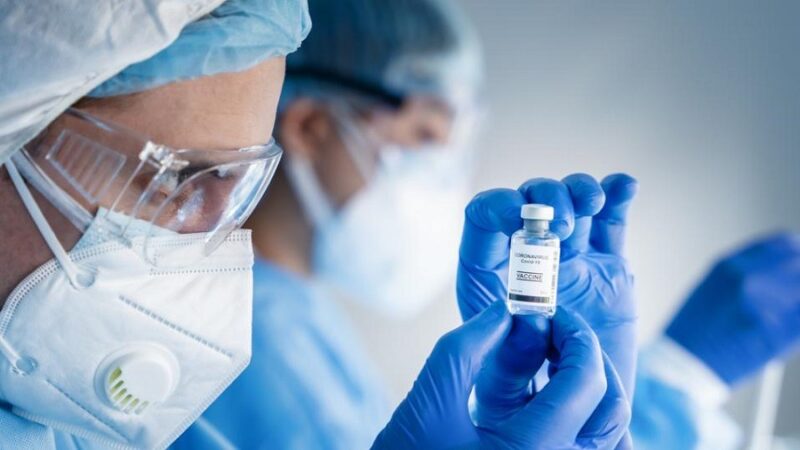
The efficacy of the Oxford-AstraZeneca vaccine is limited against the South African coronavirus variant and although it is effective in severe infections, it offers minimal protection in mild and moderate cases. These are the conclusions of a scientific study with 2,000 volunteers that led South Africa to suspend the launch of this vaccine in the country.
The new variant is responsible for 90% of covid cases in South Africa, which has already recorded more than 1.4 million coronavirus cases and 46,000 deaths since the pandemic began, according to data compiled by Johns Hopkins University. The country received one million doses of the Oxford-AstraZeneca vaccine and was scheduled to start giving them next week. At an online press conference on Sunday, South African Health Minister Zweli Mkhize said his government will await further recommendations on how best to proceed with the AstraZeneca vaccine in light of the new findings.
What does it mean for the most serious cases? The study was conducted by the University of the Witwatersrand, in Johannesburg, South Africa, but has not yet been peer-reviewed. South African physician and professor of vaccinology Shabir Madhi who led the research, said the results show that unfortunately, the AstraZeneca vaccine does not work against mild and moderate cases of the disease (covid-19).

Madhi said the study was unable to analyze the vaccine’s efficacy in preventing more serious infections, as the participants were a median age of 31 and therefore did not represent the demographic at greatest risk for severe symptoms due to the virus. British vaccinologist Sarah Gilbert, Oxford’s lead vaccine developer, said the vaccine should still protect against the most severe cases.
“What we are seeing from other vaccine developers is that they have a reduction in efficacy against some of the variants of the viruses, and we may not be managing to reduce the total number of cases, but there is still protection against deaths, hospitalizations, and serious illnesses, he told the BBC’s Andrew Marr Show on Sunday. The specialist also said that she believes developers are likely to have a modified version of the South African variant vaccine, also known as 501.V2 or B.1.351, later this year.
Tulio de Oliveira epidemiologist at the Nelson R. Mandela School of Medicine at the University of KwaZulu-Natal South Africa said he hopes the vaccine can still play a role in South Africa’s vaccination program. Our hope is that despite the very low efficacy in a small phase two trial in South Africa on mild infections, we will still see some efficacy on severe infections he told the.
The UK’s minister responsible for vaccination, Nadhim Zahawi, said the vaccine appeared to work well against the dominant variants in the European country. We must be aware that even when a vaccine has reduced efficacy in preventing infection, may have good efficacy against severe disease, s hospitalization, and death she said. Moderna’s early results suggest that its vaccine is still effective against the South African variant, while AstraZeneca says theirs provides good protection against the British variant.
As For The Pfizer BioNTech Vaccine,
early results suggest that it protects against both variants. What do we know about the South African variant?There is no evidence that the South African variant causes more serious illness for the vast majority of people who become infected. As with the original version, the risk is higher for people who are elderly or have significant underlying health problems. The South African variant carries a mutation, called N501Y, that appears to make it more contagious or easier to spread.
At least 20 other countries, including Austria, Norway, and Japan, have found cases of this variant of SARS-CoV-2The numbers of patients involved in the trial were small, so we can place limited confidence in the findings at this time. There is hope that the vaccine will prevent people from getting serious. The correspondent warns that this news “illustrates how challenging the pandemic is but adds that the progress offered by vaccines is the way forward.








![7 Quick Ways to Transfer Data to a New Phone [Android or iPhone] phone to phone transfer](https://www.jguru.com/wp-content/uploads/2026/01/word-image-116310-1-e1768996905264-100x70.jpeg)